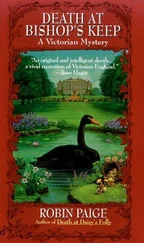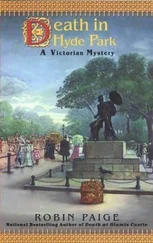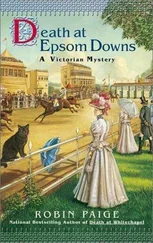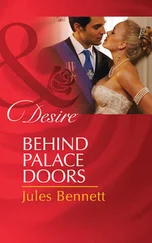Robin Paige - Death at Blenheim Palace
Здесь есть возможность читать онлайн «Robin Paige - Death at Blenheim Palace» весь текст электронной книги совершенно бесплатно (целиком полную версию без сокращений). В некоторых случаях можно слушать аудио, скачать через торрент в формате fb2 и присутствует краткое содержание. Жанр: Классический детектив, на английском языке. Описание произведения, (предисловие) а так же отзывы посетителей доступны на портале библиотеки ЛибКат.
- Название:Death at Blenheim Palace
- Автор:
- Жанр:
- Год:неизвестен
- ISBN:нет данных
- Рейтинг книги:4 / 5. Голосов: 1
-
Избранное:Добавить в избранное
- Отзывы:
-
Ваша оценка:
- 80
- 1
- 2
- 3
- 4
- 5
Death at Blenheim Palace: краткое содержание, описание и аннотация
Предлагаем к чтению аннотацию, описание, краткое содержание или предисловие (зависит от того, что написал сам автор книги «Death at Blenheim Palace»). Если вы не нашли необходимую информацию о книге — напишите в комментариях, мы постараемся отыскать её.
Death at Blenheim Palace — читать онлайн бесплатно полную книгу (весь текст) целиком
Ниже представлен текст книги, разбитый по страницам. Система сохранения места последней прочитанной страницы, позволяет с удобством читать онлайн бесплатно книгу «Death at Blenheim Palace», без необходимости каждый раз заново искать на чём Вы остановились. Поставьте закладку, и сможете в любой момент перейти на страницу, на которой закончили чтение.
Интервал:
Закладка:
She reached the boathouse, found the skiff, and clambered in. Picking up the oars, she began to row. As she leaned into the rhythms of rowing, she and the boat moved over the water as silently as a cloud shadow across the moon, all the way across the lake to the grassy slope beneath Rosamund’s Well, a magical spring that had flowed unceasingly for centuries. The spring’s waters, Ruth had told her, had wonderfully transforming powers. If you dipped your hand into them and wished, your wish was bound to come true, no matter how wild and silly it was. That was what had happened to Fair Rosamund centuries and centuries ago, Ruth said. Rosamund was just a plain, ordinary girl-a scullery maid in a Woodstock house, people said-until she dipped her hand in the spring and wished to be loved by a king. Not long after, her wish came true. King Henry fell passionately in love with her and would have married her, if he hadn’t happened to have a queen already, who was as jealous and mean as anything. But he built her a beautiful house on the hill above the spring, and himself a splendid palace not far away, and whenever he could get away from the queen, he’d come and make love to Rosamund.
Well, Kitty thought, when she finished transacting her business tonight, she’d dip her hand in that spring, too, and wish that some handsome man with lots of money and power, a duke or a prince or somebody like that, would fall in love with her and get down on his knees and beg her to marry him. But she wouldn’t have to depend on magic to have money in her pocket, or wait for some fairy godmother to wave a wand and free her from service. She was about to make that happen herself!
As Kitty beached the boat and went toward the spring, she thought with an almost giddy delight that it would not be long before her dreams came true. After tonight, she would have the means to leave the drudgery and hard work behind, to buy jewelry and pretty clothes and hire a ladies’ maid who would fix her hair. And she would live in London in a fine house and go to the theater whenever she felt like it. After tonight, nothing would be the same, ever again. Tonight was the end of her old life and the beginning of something brand new and different.
Kitty thought she saw a glimmer of light among the shadowy trees above the well, where Rosamund’s house had once stood. He was there waiting for her, she thought with an in-drawn breath, and she stepped forward eagerly. And then, just as she reached the spring, there was a shadow behind her, and the soft sound of a footfall. Surprised, she turned, and saw the glint of something shining in the moonlight.
Kitty was half-right. Tonight, her old life would end, but the future she had imagined would not come to pass.
CHAPTER THREE
Wednesday, 13 May The Ashmolean Museum
There was a brisk traffic in stolen antiquities around the turn of the century, as a number of wealthy industrialists attempted to use the patina of antique treasures to burnish their newly acquired wealth and bolster their sense of belonging to the aristocracy.
The Social Transformation of England: 1837–1914, Albert WilliamsLord Charles Sheridan stood at the door of the Ashmolean’s Knossos exhibit, just off the main gallery, and looked around the room, shaking his head in disbelief. It was overwhelming, this immense collection of pottery, stone, and metal artifacts, all of it dug up on the island of Crete, where Arthur Evans, the Ashmolean’s chief curator, had recently uncovered a remarkable Minoan palace. It looked as if, Charles thought, the entire contents of the palace were being crated up and transported, bit by bit, to England.
Charles admired Evans’s archaeological work and hoped that the new site would open the way toward a better understanding of a hitherto unknown civilization, whose princes had once thought themselves the lords of the earth. But this wholesale exportation of artifacts-Well, some critics argued that it was little more than thievery, just another example of the British Empire’s habit of pilfering the priceless treasures of other cultures, and on the whole, Charles had to agree with them. If the precious antiquities could be safeguarded against the attacks of time and human greed, Crete’s ancient treasures had better be left in Crete, rather than put on display in an English museum.
If Charles had thought about it, he would also have had to admit that this was rather an odd point of view for a British peer. He was, after all, the fifth Baron Somersworth, patrician owner of a sprawling family estate and country house in Norfolk and holder of a hereditary family seat in the House of Lords. He should have been entirely committed to maintaining and preserving, at all costs, the long and proud traditions of his landowning family and governing class. He should have been wholeheartedly and unreservedly delighted to see the British Empire extending its influence to the far corners of the globe and acquiring the treasures of ancient civilizations to burnish its own.
But these were not traditions from which Charles took any comfort. He had the feeling, as Joseph Chamberlain had remarked in the House of Commons, that the center of power was shifting, the old order giving way to a new, founded on democratic rather than aristocratic principles. In time, he suspected, the landed aristocracy of England would find itself entirely anachronistic, every bit as extinct and forgotten as the unremembered kings and queens of ancient Minoa, and exactly as dead and dusty as the dinosaurs.
“Sheridan!” a voice exclaimed. “So glad to see you! And what do you think of our little exhibit, eh? Quite a sight, is it not?”
Charles turned. The man striding energetically toward him, hand extended, was John Buttersworth, the Ashmolean’s Curator of Classical Antiquities.
“Little exhibit?” Charles managed a chuckle. “I must say, Buttersworth, you and the museum have outdone yourselves this time.”
“Indeed.” Buttersworth beamed. “And there’s more to come, Sheridan, much, much more. The number of artifacts Evans is uncovering is simply astounding, and each of them is a treasure in its own right.” His smile became broader, the light glinting off his gold-rimmed spectacles. “And it’s all to be shipped right here, every bit of it. A real feather in the Ashmolean’s cap, if I may be permitted to say so. The museum shall be acknowledged throughout the world as the chief repository of the glories of Minoan Crete.”
“I’m sure,” Charles said dryly. There was no point in confiding his feelings about the exhibit to Buttersworth, who could neither understand nor share them. Instead, he raised the question that had been his real purpose for coming to the Ashmolean.
“I haven’t been upstairs to look,” he said, “but I take it that the Warrington Hoard has been restored to its proper place.”
“Indeed it has,” Buttersworth said warmly. “I must admit that we would have been lost without your assistance, Sheridan. To work through the usual channels would have been to risk scandal, and that was out of the question. I was utterly at my wits’ end when you came to tell me that you’d got word of the Hoard.”
By “the usual channels,” of course, Buttersworth was speaking of the Oxford police. Charles understood the museum’s reluctance to involve them in the theft of a major holding, such as the Warrington Hoard. While local constabularies were adequate to the tasks of suppressing street crime and preserving order, they lacked the tools and finesse required to perform complex investigations. And once the police were brought into a case, all hope of confidentiality flew out the window.
This was a special problem where adverse publicity-“scandal,” as Buttersworth put it-might cause just as much damage as the theft itself. The museum’s reputation would have been irretrievably ruined if the public had got wind of the theft of the Warrington Hoard, causing prospective donors to think twice before they trusted the Ashmolean with their precious collections. If the museum couldn’t safeguard the Hoard, how could it protect other acquisitions?
Читать дальшеИнтервал:
Закладка:
Похожие книги на «Death at Blenheim Palace»
Представляем Вашему вниманию похожие книги на «Death at Blenheim Palace» списком для выбора. Мы отобрали схожую по названию и смыслу литературу в надежде предоставить читателям больше вариантов отыскать новые, интересные, ещё непрочитанные произведения.
Обсуждение, отзывы о книге «Death at Blenheim Palace» и просто собственные мнения читателей. Оставьте ваши комментарии, напишите, что Вы думаете о произведении, его смысле или главных героях. Укажите что конкретно понравилось, а что нет, и почему Вы так считаете.











